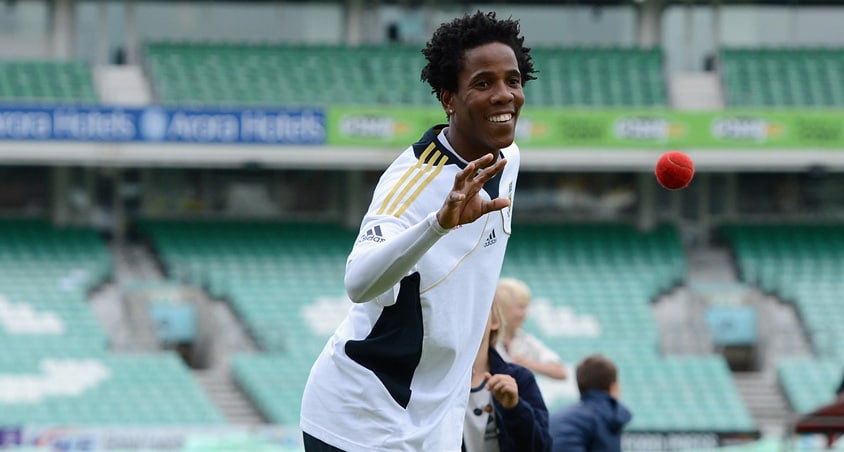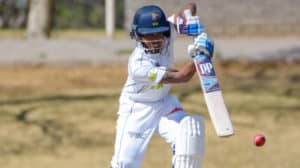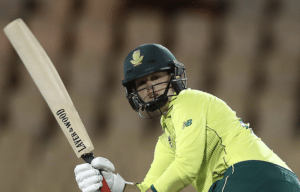Thami Tsolekile has a legitimate reason to feel aggrieved at his treatment with the Proteas but he can’t blame this for his demise, writes SA Cricket Magazine’s editor Ryan Vrede.
Two things can be true simultaneously, and Tsolekile’s career is testament to that. His account of how he was treated during his time with the Proteas is harrowing and yet again highlights the deep-rooted racism that has gripped South African cricket for too long. That said, it is also true that he was, through his involvement in match-fixing in 2015, the architect of his own demise.
Yet Tsolekile was happy to allow the audience of Robert Marawa’s radio show to draw cause-and-effect conclusions linking his treatment to his demise.
Marawa enabled his guest’s sense of victimisation when he said: ‘Those that wanted to make that (the match fixing) the living memory of Thami Tsolekile made it the living memory of Thami Tsolekile, obviously because they had the power and might of the pen they would write about that more than they would write about your brilliance.’
READ: Smith makes personal response to Tsolekile
Marawa is a highly gifted broadcaster, but that comment, laced with intimation of racial bias, exposed his lack of knowledge around how disgraced cricketers have been covered in South Africa. The most famous of those, Hansie Cronje, was a fine cricketer but the overwhelming and enduring memory of him is as a cheat, thanks in large part to how the media has covered the case.
If you engineer your own demise by cheating the sport you claim to love, you surrender the right to being remembered solely for your playing feats.
I got the sense that Tsolekile continues to believe he was set up as the fall guy. This despite a comprehensive investigation that spanned 18 months and was a collaborative effort of a number of bodies who had no interest in anything else but exposing the truth, including the Hawks and an external digital forensic team.
Cricket South Africa is a mess at present, but their response to Tsolekile’s allegations of bias, coercion and inadequate procedural norms was emphatic.
‘The players largely co-operated with the investigation. Each of the players was represented by their own attorneys who assisted in advising them on their rights and obligations under the CSA Anti-Corruption Code,’ they said in a statement. ‘These attorneys had the opportunity of sitting in on every meeting with the respective players, and assisted them in both evaluating the evidence presented and in concluding their Sanction Agreements in terms of which they pleaded guilty to various corruption-related offences under the Code.
‘At no time did any of the players or their respective attorneys submit that they were coerced into admitting their guilt or signing their Sanction Agreements. They did so willingly and, in fact, were consulted on, and provided input into, the respective press releases announcing confirmation of the offences to which they had admitted. Audio and video recordings were made of all the interviews with all the participants and now form part of the ongoing criminal investigation.
ALSO READ: CSA hits back at Tsolekile
‘On the allegation made by Mr Tsolekile that he was not presented with any evidence and did not receive any charges, Judge Ngoepe said: “This is not the truth. Mr Tsolekile received a formal charge sheet as is required under the Code. He was also presented with extensive evidence in the presence of his lawyer.”
‘As regards the accusations relating to alleged discrimination, Judge Ngoepe said: “The allegation that the investigation deliberately targeted black players must also be rejected. Both white and black players were investigated and charged, based on the evidence that was collected and presented.”’
Tsolekile has to date failed to offer any evidence to support his claims of racial bias, coercion and inadequate procedural norms in the context of his lifetime ban. He may be sitting on it, and if so, now is the time to lay it all on the table. However, one struggles to think why, unless new evidence has emerged (and this may be the case given another convicted cheat Alviro Petersen’s cryptic tweet last Saturday), Tsolikele hadn’t used it to save his career when he could have.
Instead years later he goes on Marawa’s show and is happy to paint a picture of a black man victimised, which is at best unproven and at worst a lie, based on the evidence presented and the judge’s account.
Again, his experiences of racial discrimination in his life and career were heartbreaking, especially when he told of having to sleep on a kitchen floor with a black team-mate on a Western Province U13 tour to Port Elizabeth. This while white players spent the week in digs at Grey High. What a disgusting and blatant act of racism.
Indeed his account of his treatment while with the Proteas was equally repulsive, especially with regards to him being overlooked to take the gloves when Mark Boucher was injured in 2012. AB de Villiers was preferred, and while he averaged 63 as a batsman/keeper following Boucher’s injury (July 2012) to December 2015, it doesn’t change the fact that Tsolekile was robbed of the opportunity to prove his worth. Equal opportunity is at the heart of the #blacklivesmatter movement. Tsolekile was denied this and it is a cricket tragedy. Furthermore, Graeme Smith needs to closely examine his role in Tsolekile’s experience. His statement, released on social media, amplified the prevailing sense that white people are largely oblivious to the experiences of blacks.
But Tsolekile was happy to weave experiences of legitimate discrimination as described above and wild accusations thereof (as it pertains to his case) all together in what felt like a desperate bid to clear his name.
This cry of racial bias in the face of overwhelming evidence to the contrary is what disgraced drug cheat Chiliboy Ralepelle is doing to distract from the fact that he has been pinned multiple times using banned performance-enhancing substances. It is an abhorrent exploitation of the spirit of our time.
ALSO READ: Petersen threatens CSA over match scandal
The science around drug-testing has developed to the point where findings are extremely accurate. I’d suggest that investigations of match-fixing in cricket are equally comprehensive and convictions only happen after exhaustive and comprehensive investigations have uncovered bulletproof evidence, given the associated consequences for a convicted player’s public image and career.
Again, new evidence may surface to support Tsolekile’s assertions that he was unfairly treated. If it does, I will apologise publicly. The onus is on him to unveil that evidence. Until then, I can only call it as I see it.
And I see two things: Firstly a highly-gifted black cricketer who was treated terribly. Secondly, a man who’s greed shaped how people will remember him. Given the weight of evidence it is safe to declare the latter has nothing to do with race.





